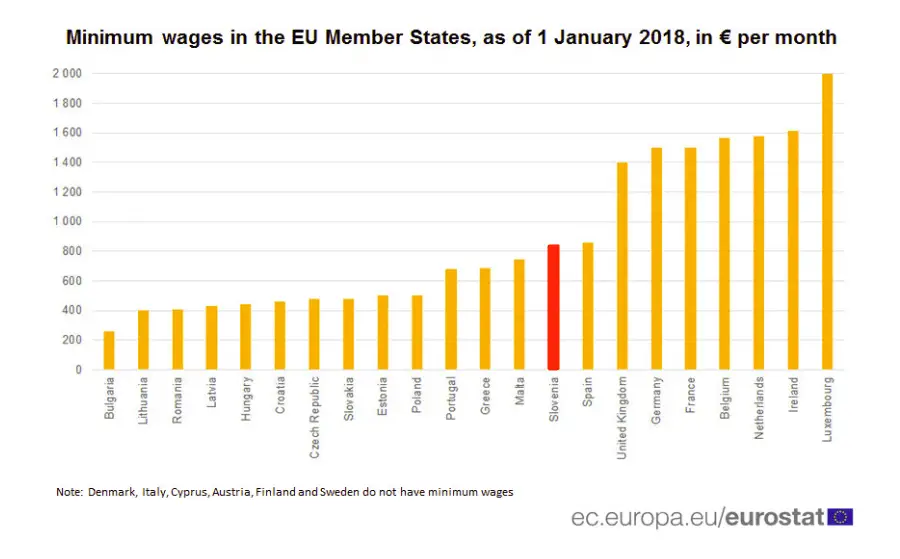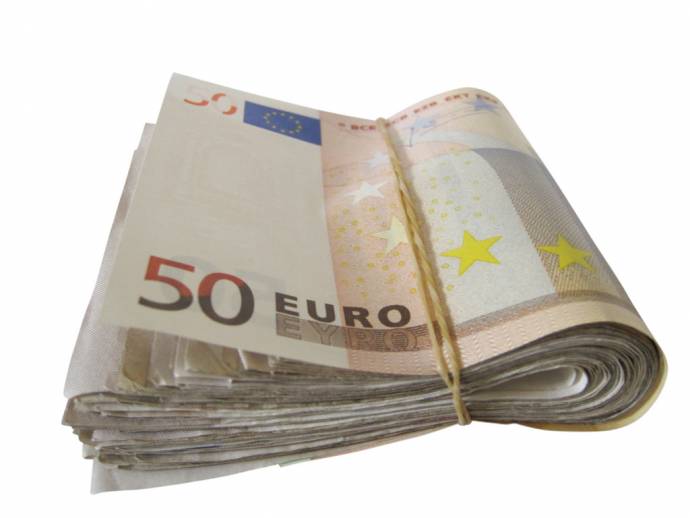STA, 7 November 2018 - Employers were quick to condemn the planned overhaul of the minimum wage law, especially the way it is to be pushed through parliament. The Employers' Association stressed that any changes to minimum wage should be harmonised with social partners at the country's main industrial relations forum, the Economic and Social Council.
The Left presented on Wednesday a proposal to overhaul the way minimum wage is determined. The opposition party that acts as a partner to the minority government proposes raising the minimum wage to EUR 667 next year and to EUR 700 in 2020, before a new formula to calculate the wage is introduced in 2021.
Related: Proposal to raise Slovenia’s minimum wage from €638.42 net to €700 by 2020
The Employers' Association is unhappy with the way the bill was presented, "bypassing any dialogue with social partners". According to a press release, employers have experience with this practice, which has had serious consequences for companies.
Determining the minimum wage must be a matter of discussions and harmonisations among social partners, but the new bill has not even been presented to the Economic and Social Council, the association said.
Even stronger reaction came from the Chamber of Commerce and Industry (GZS), the country's biggest trade association, which called the proposal dangerous and expressed "shock" that the coalition should have backed it.
"It's trampling international agreements on social dialogue, something that government officials committed to at the first session of the Economic and Social Council over a week ago."
The GZS noted that only over a week ago it had "received a clear assurance from the prime minister that any change to the minimum wage would be agreed with the social partners".

The figures in the chart show the gross minimum wage. Data: Eurostat
The Left's leader Luka Mesec said today that the party had agreed with Prime Minister Marjan Šarec for the bill to be discussed at the Economic and Social Council.
Nevertheless, employers are unhappy: "It is the middle of November, and companies and employers still do not know what kind of arrangement awaits them next year," the Employers' Association said.
The GZS said that most large companies would not feel the planned rise in the minimum wage, but that the increase would hurt companies where value added per employee was below EUR 20,000 and which employed 70,000 people.
The chamber argued that politics was interfering with the minimum wage all the time even though the share of those receiving it had been falling steadily and that even though the minimum wage in Slovenia was one of the highest in the EU.
"Each rise in the minimum wage generates more employees who earn minimum wage because it includes all those who had been in higher bracket until then," GZS said.
According to its data, average gross pay in the country has increased by 11% since 2010, while the minimum wage has risen by 41%.
The Chamber of Trade Crafts and Small Business (OZS) meanwhile said that it strives not only for raising the minimum wage but also for workers to have decent wages.
However, the state should cut labour costs to enable the workers to get higher net wages. "The difference between the gross and the net pay is too big. The state will get the most from raising wages," OZS head Branko Meh was quoted in a press release.






